

Bechtle short report sustainability 2023.
Everything at a glance: Here you’ll find a summarised excerpt from the integrated Annual Report 2023 for those interested in sustainability.
Our strategy.
Bechtle’s Sustainability Strategy 2030 defines our specific ecological, economic and social objectives. It incorporates the UN Sustainable Development Goals (SDGs) and comprises four strategic areas of action that are particularly relevant for Bechtle—ethical business practices, environment, people and digital future—each of which is backed by a programme that includes goals, milestones and operational measures.
Our vision – Ethical business practices are a matter of course.
The following SDGs apply to our actions for ethical business practices:
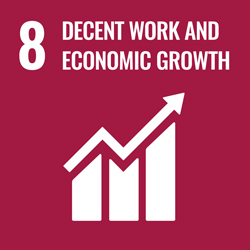
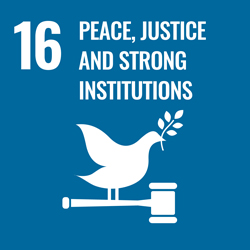
Our vision – We embrace a sustainable environmental approach in everything we do.
The following SDGs apply to our actions for the environment:
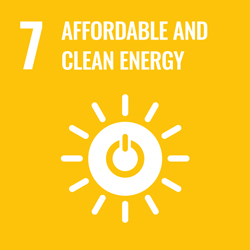
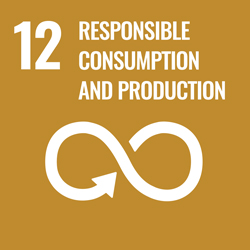
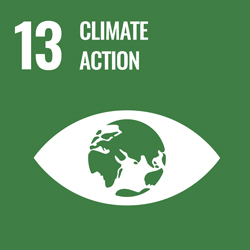
Our vision – The people we work with drive our success.
The following SDGs apply to our actions for people:
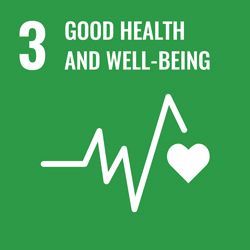
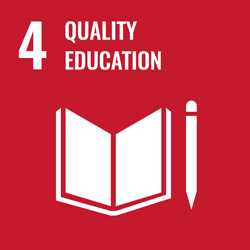
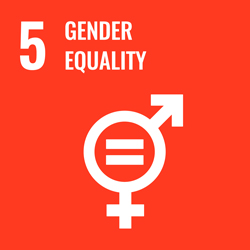
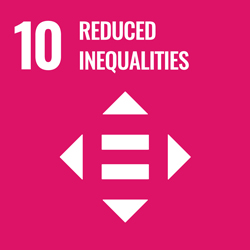
Our vision – We shape a sustainable digital future.
The following SDG applies to our actions for a digital future:
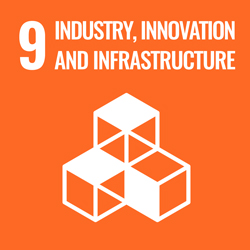
Download our Sustainability Strategy 2030, Climate Protection Strategy 2030 and our current Sustainability Programme in one compact document.
Ethical business practices.

We are committed to human rights and environmental standards along our supply chain. We call for transparent sourcing processes and are expanding sustainable supplier management. That’s why we request all our direct suppliers to sign our Supplier Code of Conduct backed up by a growing number of document-based audits to ensure compliance.
Complaint procedures in accordance with Section 8 of Germany’s Supply Chain Act (LkSG).
Any reports of human rights violations and negative impacts on the environment caused by or in the context of Bechtle’s business activities can be made in confidentiality to the following e-mail address and telephone number:
Phone: +49 7132 981-4555
E-mail: complianceboard@bechtle.com
Information on the whistleblower system
We act with integrity and in compliance with statutory requirements. Compliance and anti-corruption are paramount, which is why we consistently strive to minimise risks and advance prevention.
Bechtle sets great store in ethical and lawful conduct. It is especially important, therefore, to increase every employee’s awareness of this as part of preventative measures. The processes and measures built into the compliance system are fundamental to combating and minimising all potential risks of corruption and bribery. Applicable since 2010, and thoroughly revised in 2021, the Bechtle Code of Conduct forms the foundation of the compliance system and is binding for all Bechtle Group employees.
More detailed information about Corporate Governance as well as the Corporate Governance Statement can be found here.
Social commitment is part of our corporate responsibility and we actively support select social projects in a variety of ways as a reliable partner. Since 2014, Bechtle AG has been concentrating its social commitments in the areas of children/young people, education and sports This threefold approach echoes our corporate culture, our values and our Vision 2030 while also resonating with our very identity as a brand.


Our decentralised business model is reflected in our social commitments. With over 100 subsidiaries, Bechtle is active in its local communities as an employer, client and business partner and each managing director has discretion as to their location’s individual CSR activities.
Environment.

Published in August 2022, the Bechtle Climate Protection Strategy 2030 lays out how we aim to achieve our climate objectives in line with the 1.5 °C Paris Agreement goal set in 2015. At its heart are our targets related to the reduction of direct and indirect CO₂ emissions along the supply chain and the Climate Protection Strategy complements the Bechtle Sustainability Strategy 2030.
Bechtle has signed a commitment letter for the Science Based Targets Initiative (SBTi), pledging to pursue science-based climate protection targets and to undergo continuous audits by the globally recognised network. Once our targets have been submitted, they will be validated by the SBTi based on current scientific consent on climate issues.
- Boost energy efficiency at our locations
- Generate our own power, use of geothermal energy
- Sourcing of green energy
- Sustainable vehicle fleet strategy
- Increase in the proportion of vehicles running on alternative fuels
- Environmentally-friendly business trips and commuting
- Sustainable procurement strategy
- Close collaboration with suppliers
- More climate-friendly logistics (packaging and transport)
- Raise awareness among internal and external stakeholders
We design our logistics processes around ecological efficiency criteria, both in terms of transport and packaging. At our logistics hub, we are reducing the amount of shipping boxes used per package by 20 % without changing the way products are despatched.
We use YouTube to embed video content on our website. This service may collect data on your activity. For more information, please go to the settings page.
We think recycling before disposal, making sustainable use of the resources that exist in our IT hardware.
As a result of rapid developments and innovations, product lifecycles are becoming ever-shorter, which is why Bechtle Circular IT is fully focused on the issues that arise at the end of a product’s lifecycle, taking into consider information security, data protection and the responsible handling of resources. Our specialists ensure the secure wiping of corporate data and manage the resale or environmentally-sound disposal of decommissioned hardware to do our part for the circular economy.


For more information, please refer to our Climate Protection Strategy 2030.
People.

As a forward-facing employer, we offer our employees the freedom to pursue their own ideas guided by a clear vision, a close-knit team environment that values individual contribution, and many ways to create a healthy, personal work-life balance. Flat hierarchies enable every employee to take on responsibility early on and develop an entrepreneurial mindset. What’s more, Bechtle employees enjoy extensive opportunities to develop and hone their professional skills and knowledge, to showcase their talents, and to be creative in how they approach their goals.
Bechtle developed a new DE&I strategy in 2024 and published it in 2025. It is a clear commitment to diversity and fairness. Moreover, it is an expression of our self-image and that diversity and fair cooperation characterise our actions. These principles are firmly anchored in the actions of all employees - which is why every person at Bechtle plays an important role. We value all colleagues equally. Together, we contribute towards a respectful cooperation and know that diversity always opens new perspectives.
Bechtle stands for an ethical working environment that is free from any form of discrimination and respects the dignity and rights of every individual. Our corporate culture is characterised by fairness, openness, understanding and tolerance in our dealings with one another. We promote this forward-looking culture of diversity and provide an environment in which all employees can realise their full potential.
We aim to set the standard for diversity, equality, and inclusion through our internal and external actions. After all, the diversity of our employees is the foundation of our company's sustainable success.
Our new DE&I strategy enables us not only to live diversity as a value, but also to integrate it into our processes, structures, and day-to-day activities.
Our DE&I strategy covers the seven dimensions of the Diversity Charter:
Age, gender, physical and mental ability, social background, ethnic origin and nationality, sexual orientation, religion and worldview.
Our initial focus is on four key dimensions: Age, gender, physical and mental ability, and social background.

This dimension focuses on the meaning of mixed-age teams, particularly in light of demographic change and the shortage of skilled workers.
Short-term objectives:
- Focus on intergenerational collaboration.
- Continued development of an equitable working environment.
- Raising awareness to dispel gender and age-related stereotypes.
Medium-term objectives:
- Creating a culture that respects all age groups.
- Promoting synergies between the various generations.
Long-term objectives:
- Establishing cross-generational and respectful people development.
- Flexibility and individual career development through adapted working models.

This dimension is concerned with promoting equal opportunity and avoiding gender discrimination.
Short-term objectives:
- Increasing the number of women taking part in leadership and development programmes.
- Supporting flexible working models.
- Increasing the visibility of women.
Medium-term goals:
- Targeting young high potentials.
- Mid-career support for woman (addressing the “part-time trap”).
- Increasing the percentage of women in leadership positions.
Long-term goals:
- Promotion of fair and inclusive conditions for all employees.
- Better work/life balance.
- Increasing diversity and talent acquisition.

This dimension considers people with physical and mental impairments with the aim of establishing an accessible working environment for all.
Short-term objectives:
- Increasing responsibility through specific inclusion projects.
- Raising awareness among leaders.
- Promoting openness and an understanding of visible and invisible disabilities.
Medium-term objectives:
- Training on the legal requirements and international standards.
- Raising awareness of visible and invisible disabilities.
- Increasing the percentage of severely disabled employees.
Long-term objectives:
- Implementing measures to adapt working environments and processes for people with impairments.
- Implementing legal requirements and international standards.

This dimension relates to the impact a person’s social background has on their career opportunities.
Short-term objectives:
- Promotion of a more diverse and equitable group of applicants.
- Increase in the number of participants in the “FIT” Career Jumpers Programme.
- Raising awareness of the significance of social background.
Medium-term objectives:
- Promotion of fair opportunities and inclusion in professional careers.
- Increase in equal opportunity and visibility into a host of life paths.
- Boosting leadership skills in socially diverse teams.
Long-term goals:
- Long-term implementation of transparent and fair selection criteria.
- Long-term partnerships with educational institutions.
- Raising awareness of the impact social background has on success

This dimension focuses on the meaning of mixed-age teams, particularly in light of demographic change and the shortage of skilled workers.

This dimension is concerned with promoting equal opportunity and avoiding gender discrimination.
Short-term objectives:
- Focus on intergenerational collaboration.
- Continued development of an equitable working environment.
- Raising awareness to dispel gender and age-related stereotypes.
Short-term objectives:
- Increasing the number of women taking part in leadership and development programmes.
- Supporting flexible working models.
- Increasing the visibility of women.
Medium-term objectives:
- Creating a culture that respects all age groups.
- Promoting synergies between the various generations.
Medium-term goals:
- Targeting young high potentials.
- Mid-career support for woman (addressing the “part-time trap”).
- Increasing the percentage of women in leadership positions.
Long-term objectives:
- Establishing cross-generational and respectful people development.
- Flexibility and individual career development through adapted working models.
Long-term goals:
- Promotion of fair and inclusive conditions for all employees.
- Better work/life balance.
- Increasing diversity and talent acquisition.

This dimension considers people with physical and mental impairments with the aim of establishing an accessible working environment for all.

This dimension relates to the impact a person’s social background has on their career opportunities.
Short-term objectives:
- Increasing responsibility through specific inclusion projects.
- Raising awareness among leaders.
- Promoting openness and an understanding of visible and invisible disabilities.
Short-term objectives:
- Promotion of a more diverse and equitable group of applicants.
- Increase in the number of participants in the “FIT” Career Jumpers Programme.
- Raising awareness of the significance of social background.
Medium-term objectives:
- Training on the legal requirements and international standards.
- Raising awareness of visible and invisible disabilities.
- Increasing the percentage of severely disabled employees.
Medium-term objectives:
- Promotion of fair opportunities and inclusion in professional careers.
- Increase in equal opportunity and visibility into a host of life paths.
- Boosting leadership skills in socially diverse teams.
Long-term objectives:
- Implementing measures to adapt working environments and processes for people with impairments.
- Implementing legal requirements and international standards.
Long-term goals:
- Long-term implementation of transparent and fair selection criteria.
- Long-term partnerships with educational institutions.
- Raising awareness of the impact social background has on success
We want to provide our employees with a safe and productive working environment in which they feel at ease and which is designed to prevent work-related injuries and illnesses. It’s essential that we take our responsibility as an employer seriously and ensure that the company is a safe and healthy place to work.

Compliance with legal regulations is a matter of course, and we attach great importance to the well-being of our employees, which is why Corporate Health Management (CHM) has an extensive offering ranging from yoga and fitness courses to medical check-ups. Furthermore, employees in Germany can take advantage of the opportunity to lease a company bike.
Since 2021, Bechtle AG in Neckarsulm and Gaildorf have been EN ISO 45001-certified in occupational health and safety management.
Digital future.

Within the scope of our IT strategy, we are pursuing the goal of making our own enterprise architecture resource-saving, efficient and user-friendly. Our efforts in this regard are particularly guided by consumer behaviour, modularity, reusability, redundancy, and scalability. Bechtle IT develops sustainability criteria to evaluate our internal processes and applications in terms of economic, social and environmental aspects. The strategy integrates process optimisation and modification as well as IT retirement and a streamlined application landscape and infrastructure. Scaling back enhances employee satisfaction on the one hand, reduces CO₂ emissions and boosts IT security on the other.
Digitalisation is transforming the way we live and work across all industries and is the key to a successful future. We take an active and responsible role to help our customers optimally implement their digitalisation strategy, uphold their corporate digital responsibility, and achieve their climate targets. For Bechtle, sustainable technologies, solutions and services are the very essence of the business model as an IT organisation and an issue that permeates the entire Bechtle Group. We engage closely with our vendor partners, who are in turn advancing the production of sustainable IT hardware, and we are continuously developing our portfolio and integrating new products that meet a variety of sustainability criteria. One important instrument to evaluate the energy consumption of hardware, for instance, are certified seals such as Energy Star, EPEAT, TCO Certified, or Blue Angel.
Our data centres at NTT in Frankfurt am Main and Rüsselsheim have joined the Climate Neutral Data Centre Pact and are aiming to achieve net-zero carbon emissions by 2030. We also expanded capacities for private cloud services with a new data centre located in the Rhine-Neckar metropolitan region, collaborating with the colocation provider, PFALZKOM, at the Mutterstadt campus. The new PFALZKOM data centres not only deliver outstanding availability and security, but also fulfil essential criteria laid out by the Climate Neutral Data Centre Pact.
Information security, data protection and confidentiality are imperative for Bechtle’s business activities. For Bechtle, adherence to legal provisions (EU General Data Protection Regulation, GDPR) is a matter of course. When it comes to information security and data protection, preventative measures are essential.

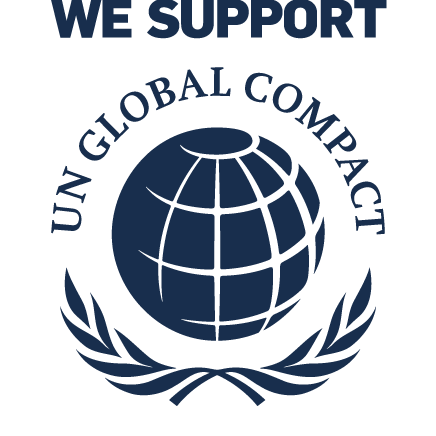


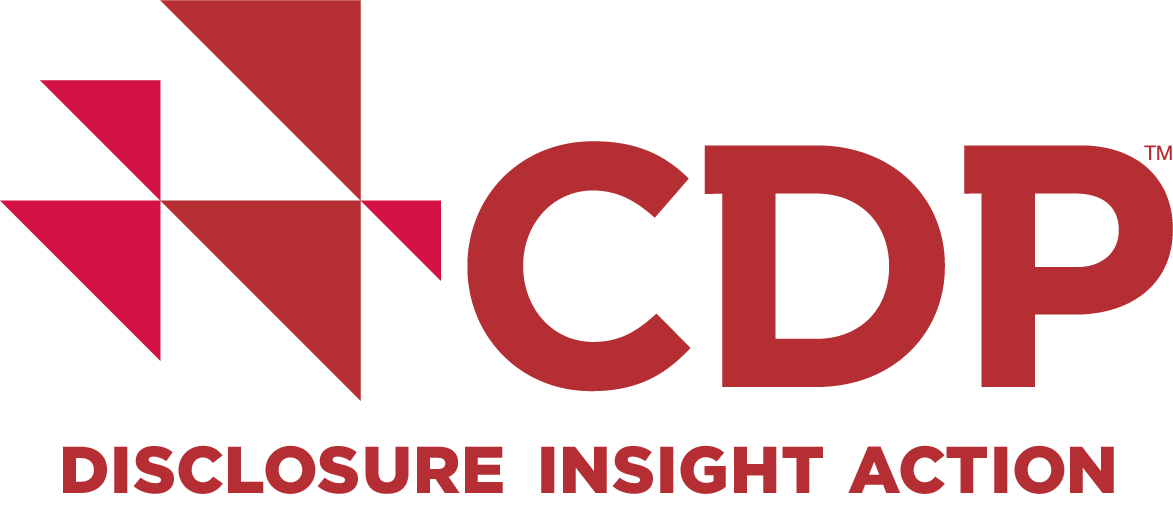
















Bechtle’s Sustainability Management department reports directly to the Executive Board and is a central point of contact within the Bechtle Group for all sustainability-related questions. Its tasks include monitoring progress and the strategic development of the Bechtle Sustainability Strategy 2030.
We also identified a number of central departments that have been integrated into a core team that is dedicated to promoting the topic:
- Sustainability communications and reporting
- Sustainability controlling
- Sustainable procurement and logistics
- Diversity
- Sustainability communications and reporting
- Sustainability controlling
- Sustainable procurement and logistics
- Diversity
These sustainability experts also work closely with the Sustainability Management team. As a cross-cutting issue, the topic of sustainability is woven into the fabric of the Bechtle Group and backed up by a Sustainability Community of over 150 regional sustainability officers and data entryists who connect every one of the 100 Bechtle companies across Europe. In its role as the steering board for sustainability, the Executive Board convenes at least once a year and as and when a decision must be reached.
We believe authenticity and credibility carry weight, which is why it’s important for us to be transparent in our annual sustainability reporting. The 2019 Sustainability Report was the first to adopt Global Reporting Initiative (GRI) standards.

Sophie Röcken

Dr Nicole Diehlmann
Chief Sustainability Manager
(People and ethical business practices)
E-mail: nicole.diehlmann@bechtle.com

